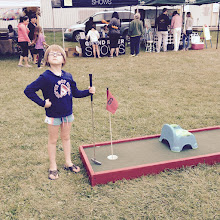A Million Little Pieces of truth Make One Big Truth

For those who may not know, James Frey wrote an autobiographical account of his life as a drug addict. After selling thousands of copies, reaching national celebrity, and appearing on Oprah, Frey admitted that several parts of his book were fabricated.
This caused a national outcry. Oprah brought him back on her show and made him apologize on national TV for "lying." The publishers said Frey lied to them about the authenticity of his book, and now he's released a statement clarifying the accuracy of his memoir.
As a student of non-fiction there is hardly a seminar or workshop that goes by without the issue of "truth" popping up. Are we telling the truth? What do we owe the readers? What do we owe our writing? What is the definition of "truth?"
There are two types of truth that any author approaching CNF must consider. There is little "t" truth*, meaning the recordable facts. I'm wearing a brown sweater and listening to Postal Service as I type.
Then there is big "t" Truth*, meaning the emotional facts or how it felt. Joan Didion writes in her essay, "On Keeping a Notebook" --
"I tell what some would call lies. 'That's simply not true,' the members of my family frequently tell me when they come up against my memory of a shared event. 'The party was not for you, the spider was not a black widow.'...How it felt for me: that is getting closer to the truth [I write]."
The presence of these two truths creates a spectrum with either one positioning itself at a polar end. Some writers believe that the recordable facts only bog down their prose, and distract from the "True" story. And so these writers work closer to the end where embellishment and imagination reign. Other writers are pulled to the end where hard facts delineate like anchors.
Author John D'Agata is a good example of an author who positions his writing closer to emotional truth. In his introduction to a book of collected essays edited by D' Agata, he lists several sentences of facts about the authors. Then he writes, "I'm telling you this now, at the start of our journey, because I know you are expecting such facts from nonfiction. But henceforth please do not consider these 'nonfictions.' I want you preoccupied with art in this book, not with facts for the sake of facts."
On the other end of the spectrum we have Lee Gutkind, editor of the literary journal "Creative Nonfiction." Gutkind has established himself as the advocate for factual creative nonfiction. He writes in his introduction to _In Fact: The Best of Creative Nonfition_, "Wherever you draw the line between fiction and nonfiction, remember the basic rules of good citizenship: Do not re-create incidents and characters who never existed."
When authors decide to write creative nonfiction they must choose where to place their literature on this gradient of Truth. Sometimes, this happens instinctually. Sometimes, it is a deliberate choice.
If you ask me to "fall off the log" regarding James Frey's fiasco I will tell you this: I do not believe that what makes cnf, nonfiction is the amount of factual truth. It is however, the relationship between the author and the reader. In fiction, the reader can forget the author. They can engage with the text as an autonomous source.
I believe cnf distinguishes itself from fiction because it introduces the author. The reader engages not only with the text, but also with the voice of the author who is telling them through out the narrative, "This is t-True."
I don't believe an author owes it to their audience to tell the truth in their text. Let them instead be True to their art. I do believe the author owes it to their audience to clarify somewhere along the way where their text stands on the spectrum between truth and Truth. (There's more to be said about how an author can do this.)
And this is where I believe Mr. Frey got into trouble! I think an audience wont mind if you give them the emotional Truth rather than the factual truth. I do think, however, they want to know which you are telling them.
*These phrases coined by Dr. Mary Brown.


1 Comments:
This is interesting.
It would seem then that big "t" truth validates/honors emotions and makes them acceptable/reality.
So often we are told to NOT validate our emotions and that our emotions are deceiving. I think this was probably the essence of why Oprah asked Frey to come and appologize.
I think I just said the same thing as you? :)
Post a Comment
Subscribe to Post Comments [Atom]
<< Home